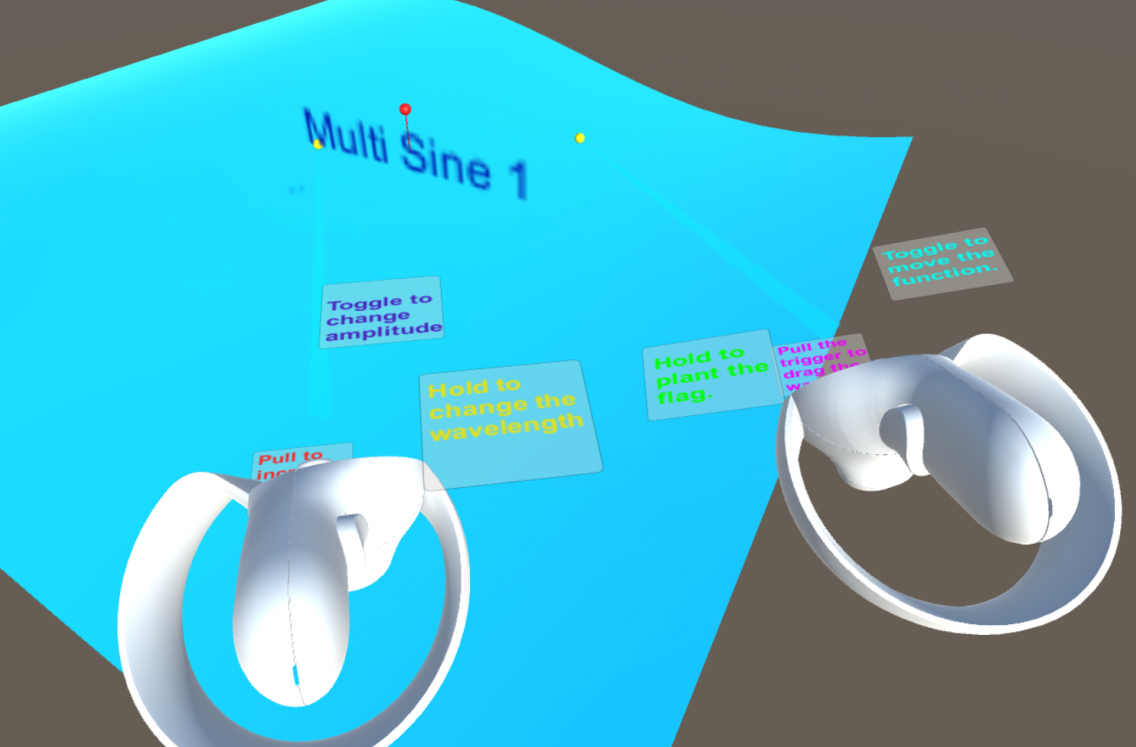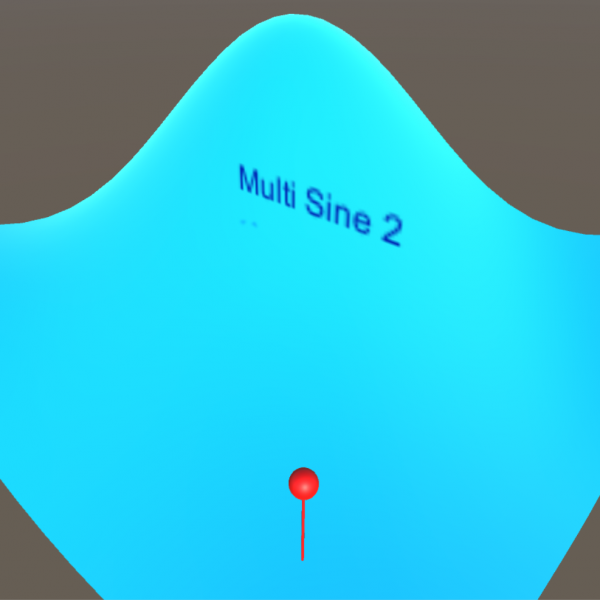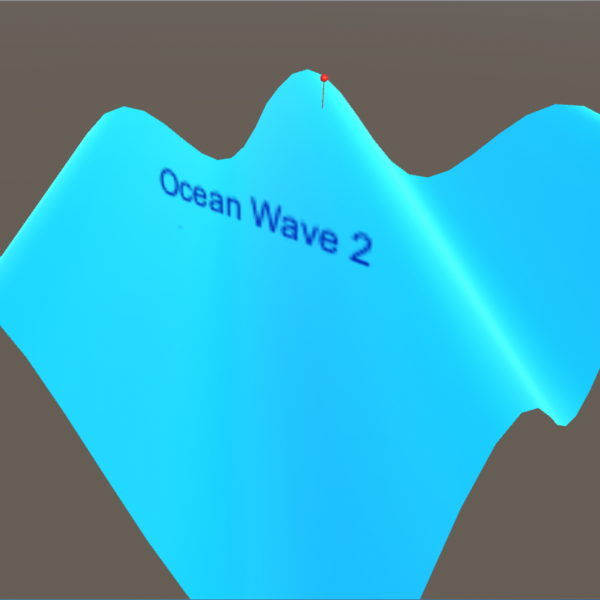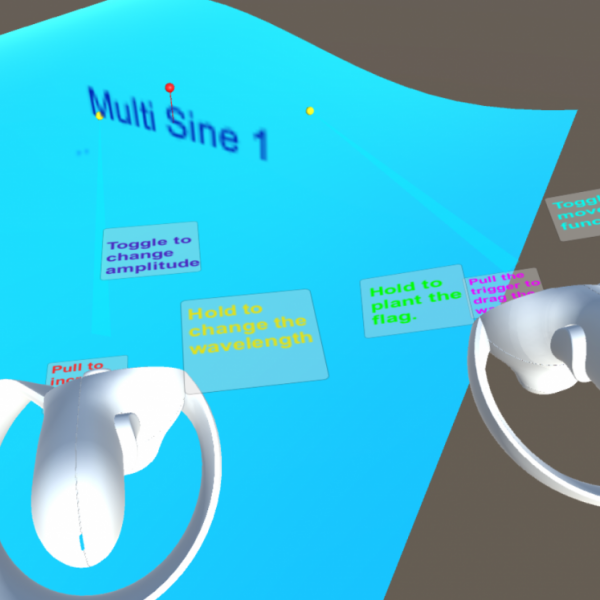Jupyter 3D

The Project
Jupyter 3D is a set of tools being developed to allow users to display and interact with data in VR. The really important feature is that they can interface with everything through jupyter notebooks. Our hopes are that the tools we make are general enough that people can make their own physics simulations. Jupyter notebooks is a data science tool used by many scientists to program their physics simulations, it’s widely used in industry and very easy to learn currently there is no way to connect these notebooks to a VR environment.
Background
Our project aims to enhance teaching and learning in physics and math by helping students develop an intuition for mathematical models and computer simulations of real physical phenomena. We want to use a 3D Virtual Reality experience to replicate the real physics in a simulated environment, as it is too expensive and dangerous to bring students to see a real physical wave (such as electromagnetic waves from a radio) and 2D animations on a computer screen are not sufficiently informative or useful to a student.
We chose “waves” as a demonstration topic, although other physics simulations may be considered down the road.
Goal
The goal of our project is to create an experience where students can select a static wave equation from a drop-down menu and see the wave surface in VR. The student can walk around the static wave, move it in the VR space using a controller and mark important points on the wave using a 3D marker to show they have found an area of interest in the simulation.
Gallery
The Team
Principal Investigators
- Dr. Matthew Yedlin
Electrical and Computer Engineering Department, Faculty of Applied Science, University of British Columbia
and Faculty in Residence at UBC Studios and EML - Dr. Michael Lamoureux, Mathematics and Statistics, University of Calgary
Student Team
- Sabrina Ge, Project Coordinator (January 2019 – August 2019)
- Rayhan Fakim, Project Technical Lead (May 2019 – August 2019)
- Abel Waller, Project Technical Lead (January 2019 – April 2019)
- Daanyaal Sobani, Project Lead (September 2018 – December 2018)
- Librason Chen, Developer (January 2019 – August 2019)
- Amelia He, Developer and Research (May 2019 – August 2019)
- Harvey Huang, Developer (May 2019 – August 2019)
- Patrick Kong, Developer (January 2019 – August 2019)
- Kyle Mas, Developer (May 2019 – August 2019)
- Musa Mohannad, Developer (January 2019 – April 2019)
- Julia Zhu, Developer (January 2019 – April 2019)


